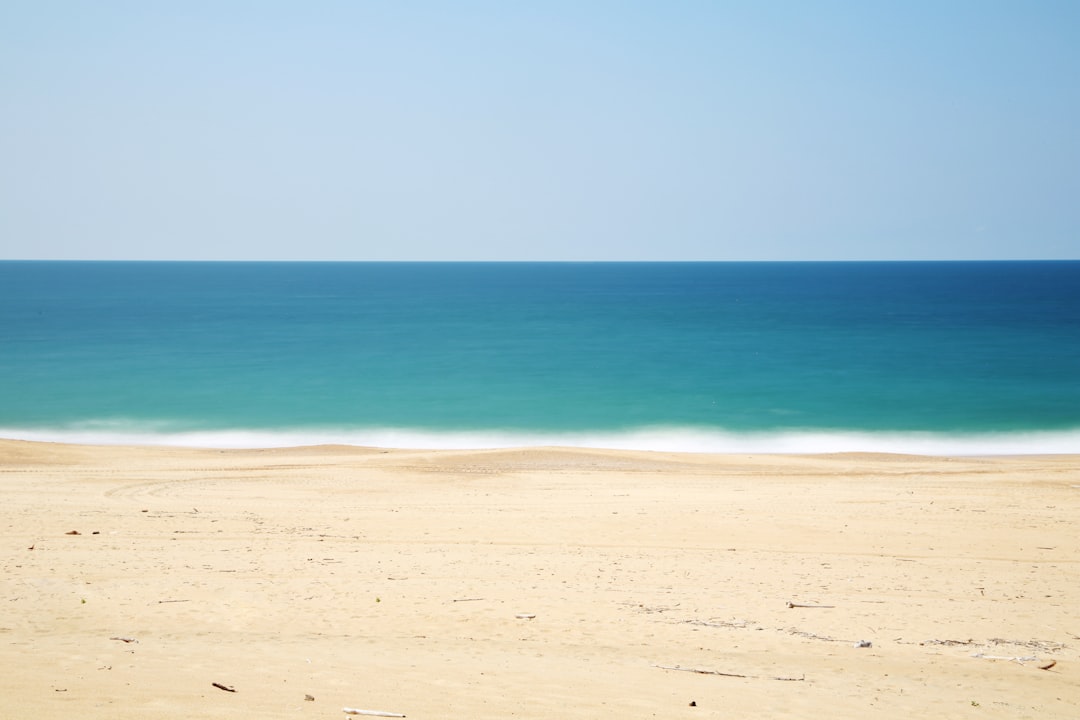
Introduction
Myrtle Beach, South Carolina: A Popular Tourist Destination
Myrtle Beach, located in South Carolina, is a renowned tourist destination known for its beautiful beaches, vibrant nightlife, and family-friendly attractions. It offers a unique experience that sets it apart from other beach destinations. One aspect that adds to its distinctive character is the presence of unique and sometimes strange laws. Exploring these laws can be both amusing and informative for visitors and locals alike, providing insights into the history, culture, and values of Myrtle Beach.
Unique Laws that Set Myrtle Beach Apart from Other Places
Myrtle Beach is not only famous for its sunny shores but also for its unusual regulations. These laws aim to protect the beaches, maintain public safety, and preserve the natural environment. While some of these laws may seem peculiar, they often have historical or practical reasons behind them. Let’s dive deeper into the strange and unusual laws of Myrtle Beach, South Carolina.
Unique Laws in Myrtle Beach, South Carolina
Explanation of Unique Laws Specific to Myrtle Beach
Myrtle Beach has several laws in place to protect the beaches and ensure the safety and enjoyment of beachgoers. These laws include restrictions on alcohol, glass containers, fires, littering, and the preservation of dunes. For example, alcohol and glass containers are not allowed on the beach to maintain a safe and clean environment, reducing the risk of accidents and injuries. Additionally, fires, including barbecues and bonfires, are prohibited to prevent accidental fires and protect the delicate coastal ecosystem. By adhering to these laws, visitors can contribute to the preservation of the natural beauty of Myrtle Beach.
Consequences for Breaking Laws: $500 fine and/or 30 days in jail
Breaking the laws in Myrtle Beach can result in significant consequences. Violators may face a fine of up to $500 or even imprisonment for up to 30 days. These penalties are in place to ensure compliance with the regulations and maintain the safety and well-being of all beachgoers. It is important for visitors to familiarize themselves with these laws to avoid any legal troubles during their stay.
Strange Laws on the Beach
Prohibition of Alcohol and Glass Containers
When visiting the beaches in Myrtle Beach, it is important to note that alcohol and glass containers are not allowed. This regulation helps to maintain a safe and clean environment, reducing the risk of accidents and injuries. Visitors are encouraged to enjoy their beach experience without the presence of alcohol or glass containers. Instead, they can opt for other refreshing beverages in plastic or non-glass containers.
Strict Littering Laws
To keep the beaches pristine, littering is strictly prohibited in Myrtle Beach. Visitors are encouraged to use the designated trash and recycling containers provided. By disposing of their waste properly, beachgoers can contribute to the preservation of the natural beauty of Myrtle Beach and ensure a clean and enjoyable environment for everyone. It is always a good practice to leave the beach in a better condition than when you arrived.
No Fires Allowed on the Beach
To ensure the safety of both visitors and the environment, fires, including barbecues and bonfires, are not permitted on the beach in Myrtle Beach. This regulation helps prevent accidental fires, which could have devastating consequences for the delicate coastal ecosystem. Instead, visitors can explore alternative ways to enjoy a beachside meal, such as picnicking in designated areas or trying out one of the many oceanfront restaurants that offer delicious cuisine.
Preservation of Dunes
To safeguard the dunes and prevent erosion, visitors are advised to stay on boardwalks and marked paths in Myrtle Beach. Walking or sitting on the dunes can cause damage and disrupt their natural stability. These dunes serve as important natural barriers, protecting the coastline from erosion and providing habitats for various plant and animal species. By respecting this regulation, visitors can play a role in preserving the unique coastal ecosystem of Myrtle Beach.
Sand and Seashell Regulations
Laws Regarding Sand
It is illegal to remove sand from the beaches in Horry County, where Myrtle Beach is located. This regulation aims to protect the coastal environment and prevent the erosion of the beaches. While it may be tempting to collect sand as a memento, it is important to remember that taking sand from the beach contributes to the erosion of these natural resources. Visitors are encouraged to appreciate the natural beauty of the sand without taking it home as a souvenir.
Rules for Seashells
Taking seashells from South Carolina beaches is generally legal for personal use. However, it is important to note that selling seashells without a license is prohibited. This regulation helps preserve the seashell population and ensures the sustainability of the coastal ecosystem. Seashells play a crucial role in the overall health of the beach ecosystem, providing homes for small marine organisms and contributing to the natural beauty of the shoreline. Visitors can enjoy the beauty of seashells during their beach walks, but it is important to leave them behind for others to appreciate.
Umbrella and Cabana Rules
Time Restrictions for Umbrellas
In Myrtle Beach, there are specific time restrictions for setting up umbrellas on the beach. Visitors can set up their umbrellas after 8 a.m. and must remove them by 7 p.m. daily. These regulations help prevent overcrowding and ensure a safe and enjoyable experience for all beachgoers. By adhering to these time restrictions, visitors can also avoid any potential conflicts with lifeguards or other beach visitors.
Placement Guidelines for Umbrellas
When setting up umbrellas on the beach in Myrtle Beach, it is important to place them in line with or behind the lifeguards’ umbrellas. This ensures that the lifeguards have clear visibility of the water and can effectively monitor the beach for any potential hazards. By following these guidelines, visitors can help create a well-organized and safe beach environment.
Permitted and Prohibited Structures
Myrtle Beach permits small pop-up or blow-up cabanas on the beach for infants or small children. However, tents, tarps, and pavilions are not permitted. These regulations help maintain a visually appealing and organized beach environment, ensuring that everyone has a fair and enjoyable experience. It is important to respect these rules to avoid any inconvenience or conflicts with other beachgoers or lifeguards.
Off-Season Regulations
From the day after Labor Day until Memorial Day, visitors can use tents and canopies up to 12-by-12 square feet on the beach in Myrtle Beach, as long as they are set up 10 feet behind the lifeguards’ umbrella line. These regulations provide flexibility for visitors during the off-season while still ensuring safety and order on the beach. It is important to note that these rules may vary, so it is always a good idea to check the most up-to-date information and guidelines before planning a beach excursion during the off-season.
Digging Holes and Tools
Limitations on Digging Holes
To ensure the safety of beachgoers, there are limitations on digging holes in Myrtle Beach. Digging holes deeper than 2 feet is not allowed. This regulation helps prevent accidental injuries and the collapse of large holes that may pose a risk to others. It is important to be mindful of these restrictions, especially when children are involved, to avoid any potential accidents or hazards.
Restricted Tools
When digging holes on the beach in Myrtle Beach, the use of metal shovels is prohibited. This rule is in place to prevent damage to underground utility lines and to maintain the integrity of the beach. Visitors are encouraged to use plastic shovels or their hands when building sandcastles or digging in the sand. These tools are not only safer but also more eco-friendly, reducing the risk of injury and minimizing the impact on the beach ecosystem.
Curious Laws Related to Animals
Myrtle Beach is not only known for its beach regulations but also for some curious laws related to animals.For example, there is a humorous law that requires horses to wear pants at all times. While this law is impractical and meant to bring a smile, it adds a touch of whimsy to the unique charm of Myrtle Beach.Additionally, there are laws requiring dogs in heat to be secluded and hidden from view. These laws aim to maintain public decency and prevent any disturbances caused by animals in heat. It is always important to be respectful of these regulations to ensure a harmonious coexistence between humans and animals in Myrtle Beach.
Strange Laws in Public Spaces
In addition to the beach laws, Myrtle Beach, like many places, has its fair share of strange laws in public spaces. For instance, it is prohibited to swear in public, wear masks or disguises in public, and change clothes in gas stations without permission [3, 4]. While these laws may seem quirky, they add to the unique character of Myrtle Beach. They are in place to maintain public order, protect the rights of individuals, and ensure a pleasant environment for residents and visitors alike.
Tattoo and Missile Laws
South Carolina, the state where Myrtle Beach is located, also has some unusual laws beyond the beach. For example, it is an offense to get a tattoo, despite tattoos being legal in the state. This peculiar law may have historical or cultural reasons behind it. Additionally, there is a requirement for a permit to fire missiles within the state. While the context or reasoning for this law may be obscure, it adds an intriguing element to the legal landscape of South Carolina. These laws serve as a reminder that legal systems can sometimes have peculiarities that reflect the unique history and cultural heritage of a place.
Historical Laws and Unusual Traditions
Some of the unusual laws in Myrtle Beach and South Carolina have historical backgrounds or are rooted in unique traditions. For instance, there was a tradition of adults bringing rifles to church on Sundays to guard against Indian attacks. Although this law is outdated and no longer enforced, it reflects the historical context of the region and the challenges faced by early settlers. These unusual traditions and historical laws provide a glimpse into the rich history and cultural heritage of Myrtle Beach and South Carolina. They remind us of the unique stories and experiences that have shaped the present-day landscape.
Conclusion
Reflecting on the Unique Laws of Myrtle Beach, South Carolina
Myrtle Beach, South Carolina, is not only a popular tourist destination but also a place with its own set of unique and sometimes strange laws. These regulations aim to protect the beaches, ensure public safety, and preserve the natural environment. Visitors to Myrtle Beach should familiarize themselves with these laws to have an enjoyable and trouble-free experience. By respecting and adhering to the laws of Myrtle Beach, visitors can contribute to the preservation of the natural beauty and safety of this beloved coastal destination.
Importance of Familiarizing with Local Laws When Visiting Myrtle Beach
When visiting any destination, it is crucial to familiarize oneself with the local laws and regulations. This helps ensure a positive experience for both visitors and the local community. By respecting and adhering to the laws of Myrtle Beach, visitors can show respect for the local culture, protect the environment, and contribute to the well-being of the community. Familiarizing oneself with the local laws is not only a legal requirement but also an opportunity to gain a deeper understanding of the place and its values. So, before you pack your beach towel and sunscreen, take a moment to familiarize yourself with the unique laws of Myrtle Beach, South Carolina. It will ensure a memorable and enjoyable visit while respecting the rules that make Myrtle Beach the special place it is.


